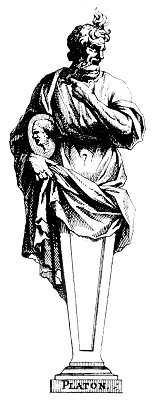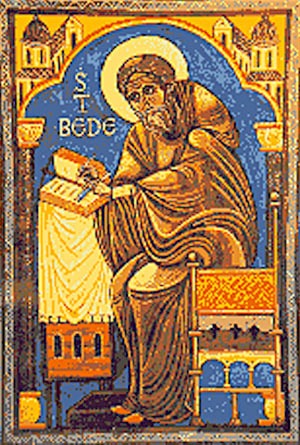The Elean sect was founded by Phædo of Elis, a youth of noble family, who was bought from slavery at the instigation of Socrates and who became his devoted disciple. Plato so highly admired Phædo’s mentality that he named one of the most famous of his discourses The Phædo. Phædo was succeeded in his school by Plisthenes, who in turn was followed by Menedemus. Of the doctrines of the Elean sect little is known. Menedemus is presumed to have been inclined toward the teachings of Stilpo and the Megarian sect. When Menedemus’ opinions were demanded, he answered that he was free, thus intimating that most men were enslaved to their opinions. Menedemus was apparently of a somewhat belligerent temperament and often returned from his lectures in a badly bruised condition. The most famous of his propositions is stated thus: That which is not the same is different from that with which it is not the same. This point being admitted, Menedemus continued: To benefit is not the same as good, therefore good does not benefit. After the time of Menedemus the Elean sect became known as the Eretrian. Its exponents denounced all negative propositions and all complex and abstruse theories, declaring that only affirmative and simple doctrines could be true.
The Megarian sect was founded by Euclid of Megara (not the celebrated mathematician), a great admirer of Socrates. The Athenians passed a law decreeing death to any citizen of Megara found in the city of Athens. Nothing daunted, Euclid donned woman’s clothing and went at night to study with Socrates. After the cruel death of their teacher, the disciples of Socrates, fearing a similar fate, fled to Megara, where they were entertained with great honor by Euclid. The Megarian school accepted the Socratic doctrine that virtue is wisdom, adding to it the Eleatic concept that goodness is absolute unity and all change an illusion of the senses. Euclid maintained that good has no opposite and therefore evil does not exist. Being asked about the nature of the gods, he declared himself ignorant of their disposition save that they hated curious persons.
The Megarians are occasionally included among the dialectic philosophers. Euclid (who died 374? B.C.) was succeeded in his school by Eubulides, among whose disciples were Alexinus and Apollonius Cronus. Euphantus, who lived to great age and wrote many tragedies, was among the foremost followers of Eubulides. Diodorus is usually included in the Megarian school, having heard Eubulides lecture. According to legend, Diodorus died of grief because he could not answer instantly certain questions asked him by Stilpo, at one time master of the Megarian school. Diodorus held that nothing
PLATO.
From Thomasin’s Recuil des Figures, Groupes, Thermes, Fontaines, Vases et autres Ornaments. Plato’s real name was Aristocles. When his father brought him to study with Socrates, the great Skeptic declared that on the previous night he had dreamed of a white swan, which was an omen that his new disciple was to become one of the world’s illumined. There is a tradition that the immortal Plato was sold as a slave by the King of Sicily.
p. 15
can be moved, since to be moved it must be taken out of the place in which it is and put into the place where it is not, which is impossible because all things must always be in the places where they are.
The Cynics were a sect founded by Antisthenes of Athens (444-365? B.C.), a disciple of Socrates. Their doctrine may be described as an extreme individualism which considers man as existing for himself alone and advocates surrounding him by inharmony, suffering, and direst need that be may thereby be driven to retire more completely into his own nature. The Cynics renounced all worldly possessions, living in the rudest shelters and subsisting upon the coarsest and simplest food. On the assumption that the gods wanted nothing, the Cynics affirmed that those whose needs were fewest consequently approached closest to the divinities. Being asked what he gained by a life of philosophy, Antisthenes replied that he had learned how to converse with himself.

Moe is the founder of GnosticWarrior.com. He is a father, husband, author, martial arts black belt, and an expert in Gnosticism, the occult, and esotericism.



